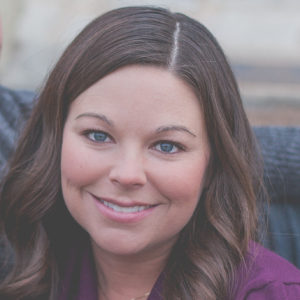 Kate Watt joined the Great Lakes Review team as a poetry editor in February 2020.
Kate Watt joined the Great Lakes Review team as a poetry editor in February 2020.
She holds an MFA in Poetry from the University of Missouri-St. Louis, where she’s an assistant teaching professor. You’ll find her work in a variety of journals, including Crab Orchard Review, Button Magazine, China Grove, Appalachee Review, and Atlantic Pacific Press. She manages and advises the student-run literary journal, LitMag.
We talked with Kate about the skills that serve both poetry and essays and how to take effective risks in writing.
You’re both a poet and an essayist. Can you talk a little bit about the intersections of those two forms? Are there any skills that serve both of these forms—both as a reader and a writer?
One of the reasons I gravitate toward personal essays, memoirs, and other creative nonfiction is the potential they have for weaving lyric with narrative. Essayists are often highly attuned to pattern, rhythm, insight, and image—tools we often associate with poetry. Readers may not recognize them as readily, but essayists often build pattern and rhythm into their prose as much as poets do into their lines, and in many of the same ways—patterns in sound, patterns in image, patterns in structure—these are all just as important to well-crafted essays as they are to poetry.
How do you balance your own creative work with your roles as a professor and managing editor of a student-run literary journal? Do you have any strategies for writers who also have a 9 to 5?
I don’t always do it well, that’s for sure, and I’m failing pretty consistently these days trying to balance parenting, homeschooling, teaching and editing all from my family living room. The best advice I can give is to allow yourself some grace. We can aspire to set aside time to write every single day, but for many of us, that just isn’t realistic. Modern life demands so much of us, I think you have to embrace that every day strikes a different balance. The one strategy that has worked for me in both inspiring me and keeping me habituated to my own writing is to be immersed in as many creative and collaborative activities as I can—to that end, teaching, editing, and writing are so intertwined that it really takes very little effort to balance them because each one feeds the others.
Your Great Lakes Review bio says you’re looking for “voices that take risks and unnerve.” On the writing side, how can you tell whether a poem you’ve written takes risks successfully? What advice would you give to poets who want their voices to “haunt” the reader?
You don’t have to write horror or Gothic fiction to craft words that will haunt. If you want your words to haunt readers, it can be as simple as making moves in your writing that surprise us in profound and subtle ways. When a line or stanza creates a certain exhilarating discomfort within me as I come upon it, even if I have written and re-written or read and re-read that line a hundred times, that’s usually a good indicator that I’ve hit a nerve within myself worth exploring, and hopefully within my reader as well. It’s that process of unnerving myself, of disrupting my own quietude, which makes the act of writing (and reading) so stimulating.
In light of the COVID-19 pandemic, can you share something you’ve been reading, baking, listening to, watching, etc. that has brought you comfort?
I’ve been on a Paul Simon kick here lately—his gentle wisdom, paired with a cup of my grandmother’s home-made tomato soup, has brought me considerable comfort as of late.